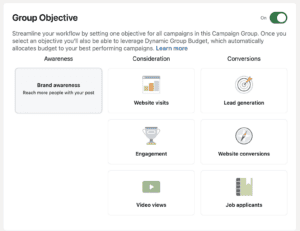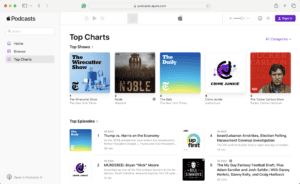If you’ve ever looked into ramping up your podcast marketing efforts, you’ve probably heard of the term search engine optimization, or SEO.
Search engine optimization is an area of digital marketing that involves creating content, building links, and tweaking your website to improve your search engine rankings. Essentially, when someone types a relevant query into Google, you want your business or project to be presented as a result.
You may not have put together a podcast SEO strategy initially, but doing so can be a great way to build a podcast audience. When people search terms relevant to what your podcast is about, wouldn’t it be great if your show was one of the first things that popped up in the search results?
In this article, we’re going to dive in and cover how you can use SEO to your advantage and build your audience. For further reading, check out our article on SEO for podcasts, where we cover researching keywords, best practices, creating written content, and more.

Optimize your titles
You want your episode titles — as well as your podcast name — to be searchable and easy to find. Don’t give them names that are difficult to understand or hard to spell, because potential errors can make it harder for your ideal fans to find you through the search engine results pages. It should be as easy as possible for your target audience to track you down.
You can ensure this is the case with the help of some keyword research. This is the process of finding out what kinds of words and phrases your target listeners are typing into search engines to find content like yours.
If you haven’t already named your podcast, consider how you can incorporate popular and relevant keywords into the title. What are you trying to help people with by providing this podcast? Who is your audience? What is the general topic people are likely to be researching before stumbling upon your podcast?
Conduct keyword research when titling individual episodes, as well.
Not only will this strategy bring you potentially high-ranking and searchable titles but, as a bonus, you can use keyword research to plan your future episodes. Find a series of keywords, outline your topics for discussion, name your episodes, and you’ll be good to go.
No more sitting around and wondering what you’re going to talk about each week — look at the data and you’ll find ideas sitting right in front of you.
Need help getting started with keyword research? Check out Loganix’s article on building an SEO keyword list. They cover topics, seed lists, data collection, and competitive research to help get you started.
And if you have a great idea but haven’t come up with a podcast name yet, don’t worry. We have a great piece on how to choose the best podcast name, which also talks about common mistakes to avoid.
Post each episode on your website
So you’ve recorded your podcast, edited the audio, found the best title possible, and uploaded it to platforms like Spotify and Apple Podcasts.
You’re not done yet, though.
You should also add a section to your website where you can host your podcast if you don’t have one already.
By having a home base for all of your podcast content, you’ll have more control over your brand. Third-party hosts can remove your podcast at any time, for any reason. Plus, having everything related to your show all in one place is great for your podcast SEO, and will hopefully lead to more people finding your show through search engines.
Think of it this way: if someone conducts a Google search relating to your show and they’re sent to an episode hosted on Apple Podcasts, they might give it a listen and subscribe (if you’re lucky).
But, if they find your podcast on your website instead, they’ll be far more likely to then learn about your products or services, sign up to your mailing list, follow you on social media, and read your blog.
If you don’t have a website to host your podcast on at all, it’s worth building one to help with your SEO. The process might seem overwhelming at first, but there are loads of online resources to get you started, and you don’t need a major budget.
Pixpa has a great guide to the six best website builders for 2021, which can point you in the direction of easy-to-use platforms that will make your job as easy as possible. And, if you need any further convincing, make sure you check out our guide on why you need to create a website for your podcast, which also offers six easy steps to help you get started.

Write complementary content that will build trust
To help boost your website and podcast SEO, and grow your audience as a result, you also need to create complementary content that will help you build up your brand authority on the subjects your podcast covers.
Search engines like Google only like to recommend sites that have displayed a good level of expertise, authority, and trustworthiness, so it’s important that you do everything you can to show you know what you’re talking about. This is where complementary content can be very helpful.
For example, Venveo is a company that helps building material manufacturers to market their products and services. They have a podcast, the Smarter Building Materials Marketing Podcast, which covers a variety of subjects relating to their field of work. This isn’t the only content they put out there, though. They also create complementary blog content, such as their guide to marketing to architects, which supports the discussions they have on their show and also displays their expertise in a different way.
This encourages people (and search engines) to see their podcast and brand as a trustworthy source of information in their niche. If you replicate this for your brand and podcast, it could help to boost your rankings on search engine results pages and, in turn, build your audience and subscriber base!
There’s a ton of different strategies you can use to grow your podcast listener base, but content marketing is a tool that’s often overlooked. If you would like to learn more, make sure you also check out our article on growing traffic for your podcast website.
Link to your podcast from your homepage
This might seem obvious, but don’t make your audience dig around on your website to find your podcast!
Own it — be proud!
Not only will this make your listeners’ lives easier, but it can also be great for your podcast’s SEO.
For most websites, the homepage is the most authoritative page, so links from here will provide the biggest boost for your search engine rankings. Where you want to put your link is up to you — if your podcast is a huge focus for you right now, you might want to put a link to it in the main navigation.
Or, if you’re using your show more as supplementary content for the rest of your business, you could consider adding a link to the footer so that it appears on every page of your website, without making too much of a statement. Better yet, you could do both.
For instance, take a look at Tipalti’s strategy: they link to their podcast from both the main navigation and the footer of their website.
This makes it incredibly easy for website visitors seeking out their podcast to find it, and more people are likely to stumble across their show. Plus, the fact that these links can be found on Tipalti’s homepage will signal to search engines like Google that their podcast is important and should be ranked accordingly.
Create free resources to attract your ideal listeners
There’s more than one way to attract your ideal listeners to your website. After you’ve made the best podcast possible, put together a great website, and started to create complementary blog posts, where do you go from there?
Consider adding free resources to your website to attract more listeners. Think about what kinds of problems your audience might have, and what tools might help to solve them. Then provide them with the solution.
Depending on your ideal audience, they may be interested in free resources like tools and calculators, print-outs or brochures, or different kinds of templates. Creating the content and resources your audience is actively searching for can bring more of them to your website and lead to more podcast downloads.
FreshBooks is a company that does this very well. They have a freelancer podcast called I Make a Living, which addresses a lot of the questions and concerns people might have when they start working for themselves.
One thing that a lot of freelancers tend to struggle with is how to bill their clients, so FreshBooks has created free invoice templates that their ideal listeners are very likely to find helpful.
Whenever someone searches Google for freelance templates, they might come across the FreshBooks website. They then might stumble across the company’s podcast, and become a huge fan and regular listener.
Consider whether this is something you could replicate for your podcast.
Summary
It’s not enough to simply record your podcast and wait for people to find it. Like with any business or project, you need to have a marketing strategy in place to grow your audience, and SEO should definitely be a focus.
You don’t need extensive or SEO training to start seeing SEO results. By optimizing your episode titles, building an SEO-friendly website, and creating great complementary content, you’ll ensure your podcast has the best possible chance of becoming one of the most popular in your niche.
For further reading, check out our article on how to get started promoting your podcast. There we provide up-to-date tips on upload times, audience-building strategies, networking, guest podcasting, and more.
About The Author
Adam Steele is the Founder and COO at Loganix, an SEO fulfillment partner for agencies and marketers. We build easy-to-use SEO services that help businesses scale. If you liked this article, please check out our SEO guides and templates on the blog.


